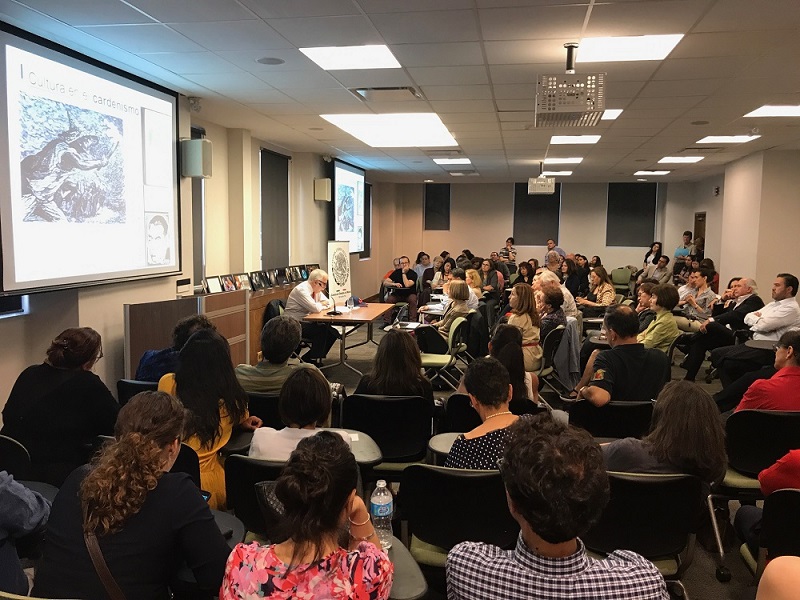Mexican academic and researcher Javier Garciadiego was invited by the University of Toronto to offer a public lecture titled “Intellectual Evolutions: Diplomacy and Literature in Twentieth-Century Mexico”, in the context of the 10th Anniversary celebrations of the university’s Latin American Studies program. The lecture was given at the Jackman Humanities Hall of the Department of Latin American Studies on Wednesday on May 17.
Dr. Garciadiego was introduced by the program’s director, Susan Antebi, and by Consul General Muñoz Ledo, who highlighted the former president of Colegio de México’s contributions to research into the history of the Mexican Revolution, as well as the importance of this historical period in the consolidation of the modern Mexican State and its academic relevance for explaining our past and understanding our present.
The historian suggested that the Mexican twentieth century began with the decline of positivism and the outbreak of the Mexican Revolution in 1910. In his talk, he underscored the importance of analyzing Mexican exceptionalism and the common features of our contemporary history.
Dr. Garcíadiego explained the influence of intellectuals in shaping the different stages of the Mexican Revolution and their contributions to the political changes produced by both the Movement of ‘68 and the end of 70 years of one-party rule in the year 2000, noting how the advances of recent years in freedom of expression and of the press have in turn facilitated the thematic diversity of Mexico’s new intellectual class.
The academic and researcher concluded by acknowledging the intellectual influence that Mexican writers have had on diplomacy in the creation of the best traditions of our foreign policy and the direction of the institutional life of Mexico’s foreign office.







